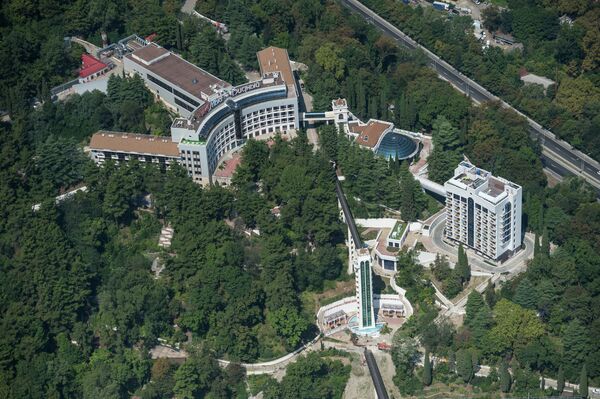SOCHI, January 10 (R-Sport) – A town 12 kilometers from Russia’s Olympic venues in Sochi will host a so-called “protest zone” during the Winter Games, Deputy Prime Minister Dmitry Kozak said Friday.
A park in the small coastal resort of Khosta will be set aside for demonstrations that have been approved by local authorities, the police and security services during the Olympics and Paralympics.
The town of around 20,000 was chosen after President Vladimir Putin lifted a ban on protests earlier this month and ordered a site for demonstrations to be identified.
Khosta, on the road between Sochi and the Olympic Park, is around 12 kilometers from the nearest Games arenas. It is not clear whether a similar zone will be set up near the Mountain Cluster of snow sports venues.
“At Khosta in the park people will be able to freely express their opinion without breaching the rights of other citizens and without breaching the Olympic charter,” Kozak said.
“At the sports arena, at the sports facilities, in compliance with the Olympic charter, expressing political opinions is forbidden.”
Russia’s state human rights ombudsman Vladimir Lukin defended the choice of Khosta, saying it was easy to reach.
“It’s possible to travel there by car, by bus or on the train from the center of Sochi, or from the sports center,” he said. “So if people want to exchange opinions and express their views on any topic, they can do it easily.”
The Sochi Olympics have attracted protests from groups opposed to a controversial Russian law banning so-called “propaganda” of gay relationships to minors, as well as from representatives of the Circassian people, who inhabited
Sochi before the Russian conquest in the 19th century, which they claim was an act of genocide.
Some restrictions on protests have been in place at all recent Olympics. At the 2008 Summer Olympics in Beijing, authorities introduced a strict permit system for protestors and arrested some demonstrators.
The London 2012 Olympics restricted protests near venues but saw a number of demonstrations in other areas of the city during the Games.
Restrictions on movement in and around Sochi were imposed on Tuesday, with the introduction of “controlled” and “forbidden” zones, and will run through March 21. They were partly a response to a call by an Islamist insurgent leader for militants to "compromise" the Games.
The controlled zones cover all Olympic venues and infrastructure, including the coastal Olympic Park and the mountain cluster of skiing facilities, and all transport hubs including air, sea and rail.
The forbidden zones include the border area separating Russia from Abkhazia, just a few kilometers east of the coastal facilities, and the Sochi National Park, an environmentally protected area.
The government has also tightened Russia’s mandatory registration system for its citizens visiting Sochi and banned all but local cars from entering the city without a special Olympic accreditation.

